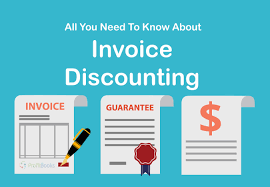Are you thinking about how to finance a startup small business in 2023? Starting your own business may be a difficult yet rewarding experience. While a strong business plan is essential for entrepreneurs, funding is one of the most significant aspects of a business’s success.
How to finance a startup small business, on the other hand, can be a tough and time-consuming procedure, especially for people with bad credit. While there is no set credit score that you must have to secure a business loan, traditional lenders have a range of credit scores that they deem acceptable.
In this post, We break down 13 small business funding choices and offer recommendations on how to finance your company.
How to Finance a startup Small Business
Small business startup capital is particularly difficult to come by—most standard business loans require one or more years in operation—but that doesn’t imply it’s impossible.
Here are ways to finance startup small businesses:
- Venture capital
- Angel investors
- Online lending
- Business Credit Cards
- Personal Savings
Venture capitals
A venture capitalist is a person who invests in startups or supports small businesses that want to grow but don’t have the financial resources to do so. Venture capital is money invested in new businesses that are thought to have both high-growth and high-risk potential.
Fast-growing companies that have an exit strategy in place can make tens of millions of dollars, which can be utilized to invest, network, and grow their business regularly. A business that is viable and created with the future in mind has a good chance of attracting venture investors’ support.
Angel investors
An angel investor is a person who provides money to people who need money to run their businesses. Angel investors make financial investments in young firms in exchange for a profit. These investors have aided in the founding of numerous well-known enterprises, and they continue to be a valuable source of capital for small businesses.
Business Credit Cards
This is another excellent approach for new enterprises to obtain capital for their first operations. If your company need less than $50,000 in funding and you are unable to obtain a loan, credit cards may be able to help. According to the Small Business Administration of the United States, up to 65% of small firms use credit cards regularly.
Credit cards are often effective for extending cash flow. You should look for and use benefits and credit card rewards such as balance transfer offers, 0% introductory rates, and cards that offer gas and office supply discounts, airline miles, or cash back, among other things.
If you handle it correctly, it can help you build a strong credit history for when your company needs finance later on.
However, you must keep a close eye on your finances to avoid falling behind on payments, which might harm your credit score. Make sure you only use your card for critical business purposes and keep your balance under 30% of your credit limit.
Online lending
Traditional company loans have been replaced by online lenders, which have become increasingly popular. These platforms offer the benefit of speed, as an application takes around an hour to complete, and the decision and associated cash can be issued within days. This strategy has been used by a large number of entrepreneurs to obtain funding for their businesses.
Personal Savings
Most people who don’t qualify for credit cards, microloans, or other types of bank financing turn to this as their initial small business funding alternative. Before you go down this road, think about factors like what percentage of your own funds you should use.
Should you invest all of your savings in your fledgling company? Should you use half as much? To avoid losing your “rainy day shield,” you must be diligent with your company planning.
401(k) Retirement Funds
Using 401(k) or IRA assets to support a business acquisition might be dangerous; however, with the appropriate technique, you can roll retirement money into equity for a new firm while avoiding taxes and early withdrawal penalties.
The advantage is that you can use your own money to fund the start-up or acquisition of a franchise. However, if the company fails, you could lose the money you needed to pay for your retirement.
Finance a Startup Small Business
You can finance a startup small business with the following source of small business fundings:
SBA Microloans
The SBA microloan program, which was established to make starting business capital more accessible to women, minorities, and veterans, now partners with community-based, nonprofit intermediate lenders to give small business borrowers $500 to $50,000.
Traditional funding with these ideal rates and durations is rarely, if ever, accessible to brand-new firms outside of this SBA-subsidized program, with interest rates ranging from 8% to 13% and term lengths not exceeding six years.
Furthermore, SBA microloan lenders are unique in that the Small Business Administration selects them to work as mentors and lenders with company entrepreneurs face-to-face. (This is only one of the numerous benefits of SBA loans.) Microloan providers, in this function, serve not only as a source of money for small business startups, but also as counsellors, offering advice on business management, marketing, and finance to ensure borrowers’ long-term success.
Having said that, all of those great benefits come with a lot of competition.
Equipment Financing
Consider equipment financing as a top choice for funding your firm if you require initial cash to purchase equipment.
Equipment loans will be easier to qualify for, even if you don’t have much experience in business, because the equipment you buy will act as collateral for the cash you use to buy it.
While many equipment lenders will have a minimum time in company criteria, a significant number will not.
Partner financing
Another player in your sector funds your growth in exchange for exclusive access to your product, staff, distribution rights, ultimate sale, or some combination of those items using strategic partner financing.
“Strategic investment is similar to venture capital in that it is typically a stock sale (rather than a loan), though it can also be royalty-based, where the partner receives a portion of every product sale,” she explained.
Partner finance is a fantastic option because the firm you partner with is likely to be a huge corporation, and it may even be in a similar industry or one that has a stake in your company.
Friends and Family
What if you don’t qualify for any of these starting business loans but don’t want to rely on a business credit card for initial capital?
To support your startup, you can explore approaching friends and relatives. However, if you choose this method of business startup funding, make sure to systematize this usually a less formal form of debt.
Grants for Small Businesses
Grants for small businesses are a type of startup finance that requires no return, unlike debt, and no exchange of stock, unlike venture capital. They have often considered the closest thing to “free money” that you could ever get for your firm.
Small company grants are usually worth looking for as a source of capital for a new business, even if they are difficult to come by. Because they tend to be quite industry-specific, you’ll need to thoroughly analyze your business situation and establish your niche to adapt your grant application to correspond with the grant sponsor’s objectives.
Crowdfunding
Using crowdfunding platforms you may be able to finance a startup small business by asking a large number of people to contribute small amounts of money to your small business startup. Each backer contribution contributes to your goal progressively, so even the tiniest donation helps—you don’t need an accredited investor to support your firm.
Setting up crowdfunding campaigns is also a terrific method to provide your young firm with some attention while you’re looking for finance.
However, keep in mind that crowdfunding rarely generates huge sums of beginning funds, and running a campaign can be time-consuming.
Consider whether the chances for exposure through crowdfunding sites will be valuable even if the campaign does not fully fund your firm before pursuing this option. If you don’t reach your crowdfunding goal, you may have to cover the balance of your startup expenditures on your own.
Accounts Receivable Factoring
Accounts Payable (A/R) Factoring is a type of asset-based finance that involves a company selling commercial accounts receivables to receive immediate cash payment before the accounts are due.
AR factoring is different from borrowing in that the accounts receivables are really sold, not just supplied as collateral. As a result, your firm will be able to turn its receivables into immediate operating cash, allowing you to avoid waiting days for your customers to pay.
Community Development Funding Institutions
Small enterprises, such as women and minority-owned businesses, that mainstream banks deem hazardous are lent to by these institutions. CDFIs provide training and technical assistance to their borrowers to assure their success, making them a well-established social investment option. Some CDFIs will assist you in (re)establishing credit.
How Can a Small Business Get a Loan for a Startup?
A small business can get a small business startup can get business finance from the following sources:
- Equipment Financing. …
- Business Credit Cards. …
- SBA 7(a) Loans. …
- SBA Microloans. …
- Other Microlenders. …
- Invoice Financing. …
- Crowdfunding. …
- Personal and Friends/Family Funding.
What Is the Best Way to Finance a Startup?
For startups and small businesses, there are numerous financing sources and channels accessible. It’s advisable you go for that which best fits your business needs.
Do Banks Give Loans to Startups?
Yes, banks provide funding to start-ups. During the application process, most bank programs will require extensive documentation, and they could range from a business bank credit card to a business line of credit to a short-term or long-term loan.
Why Is Obtaining Finance Difficult?
If a firm or project is deemed hazardous, the bank may levy a higher interest rate, which a small business cannot afford, or refuse to lend at all. Small enterprises are unable to access financial markets because they are too small. If further funding is needed, the owners may not have the personal wealth to do so.
Conclusion
Although startups have fewer choices for company financing, it is still possible to secure money for a firm with little or no prior experience. Make sure to check out the top 13 options on how to finance a startup small business.
We also recommend
- SMALL BUSINESS FUNDING: Top New 15+ Options in 2023 (+ Free Tips)
- Raising Capital: 7 Ways to Raise Capital For a Startup
- SMALL BUSINESS LOANS FOR WOMEN: Best 2023 Startup Options & Detailed Guide
- BUSINESS LOANS FOR WOMEN: Best 10+ Startup, Government and Minority
- EQUITY FINANCING: Types, Sources, Advantages & Disadvantages
- NEW BUSINESS LOANS: Loans For Startups and Small Business in the UK
- HOW TO ATTRACT INVESTORS TO YOUR BUSINESS [Mastery Guide]: 15+ Best Tips
- Raising Capital: 7 Ways to Raise Capital For a Startup
- <strong>7 Ways To Fund Your Startup</strong>






